Our Ethiopian Yirgacheffe Halo Beriti was co-sourced with Rosetta via Trabocca.
Ethiopia
Ethiopia is widely believed to be the indigenous home of the species Coffea Arabica. Genetic tracing proved that Arabica probably originated from Western Ethiopia and Southern Sudan. However, it was probably first consumed by humankind in Western Ethiopia.
Pure Arabica based coffees became a valuable crop through trade with the Arab nations. Subsequently, since the mid-1500s, the rest of Ethiopia began to grow coffee.
One great thing about Ethiopian coffees is the complete mix of varieties or should we say cultivars. These are natural hybrids that people often call heirloom or land-race. It is estimated that are between six thousand and ten thousand cultivars in the Ethiopian highlands. They cross-pollinate and create amazing genetics. In fact, heirloom coffee in Ethiopia has more cultivars than the rest of the world.
Today there are many regions with their own specific flavours associated with them, see map below:
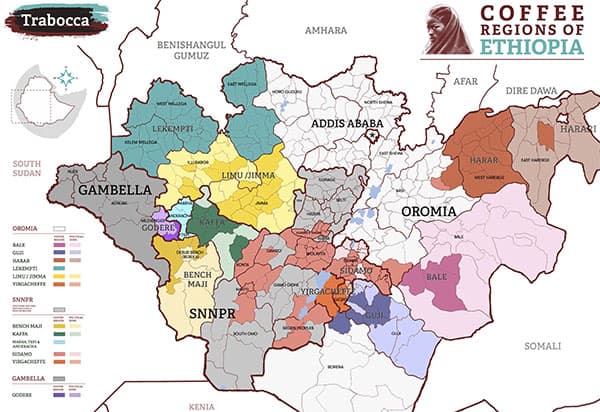
Ethiopian Yirgahceffe Halo Beriti Coffee
Halo Beriti coffee grows in Ethiopia’s southern region. It is foudn in the famous Yirgacheffe area. All coffee here comes from native Ethiopian heirloom varietals and some new varietals from the Jimma Agricultural Research Center. These varietals suit the altitude and environmental conditions of the area.
The Halo Beriti Area and Its Farmers
Halo Beriti coffee takes its name from the area where it grows. Gedeo farmers who live in this area have worked the land for generations. They grow food crops and coffee on the same fields. Abeyot Ageze is one of these farmers. Furthermore, he runs the Halo Beriti washing station with his partner Mebrahtu Aynalem. Mebrahtu has a background in marketing coffee. After meeting, they created the company Boledu Coffee, which owns and manages the washing station. Boledu Coffee founded in 2018, means “source” in the local language and combines over 12 years of experience in coffee from both Abyote Ageze and Mebrahtu Aynalem.
Abeyot has a good rapport with the other farmers in the area. He knows them well because he has lived and worked around Halo Beriti all his life. Most of these farmers have small plots of land that they inherited from their ancestors. The plots are rarely bigger than two hectares. They cover the hills and valleys around Gedeb, a district near Yirgacheffe town. The farms look like forests because they have many shade trees that are native to southern Ethiopia. Most Gedeo farmers work on their fields with their family members.
The Story of the Halo Beriti Washing Station
Boledu Coffee has managed the Halo Beriti washing station since 2017. It is one of their first and best washing stations. The washing station covers 4.8 hectares and accepts coffee from 1250 smallholders in and around the area. It has 220 raised beds to dry the coffee, almost double the capacity of Boledu’s other washing station, Halo Hartume.
Halo Beriti’s coffee has won many awards for its quality. It has received prizes from Cup of Excellence and Golden Bean Australia four times so far. Therse accolades have been achieved investing in farmer training, sharing profits with farmers and rewarding exceptional farmers by processing their lots individually. Mebrahtu says: “We want this to be a community effort where everyone sees and reaps the benefits of coffee”. He adds: “The job of the washing station is simple. The real work happens before the cherry comes to us.”
The Farmers of Halo Beriti
Ethiopia has a unique calendar with a short 13th month at the end of the year (in early September). Boledu uses this month to organize a small celebration for the farmers. Showing appreciation for their hard work, providing higher payments for high-quality cherries. A second payment is also shared from the profits of the previous year with all the farmers.
These methods help Boledu build bonds with the farmers of Halo Beriti. Most of them are happy to work with the washing station every year. As a result helping the washing station produce excellent coffee consistently. The output has grown in the past five years from five containers to 18 containers of washed coffee and 18 containers of natural coffee (including fermented lots) last year.
The Future of Halo Beriti
This small corner of Ethiopia is one with very high potential for coffee – the climate is perfect for coffee, and the farmers are experienced. However, Mebrahtu believes that while farmers are benefiting more now than they did in the past, there is a long way to go. He points out that Ethiopian coffee accounts for only three percent of the world’s market share in coffee. “We have to change that”, says Mebrahtu. “There are improvements, but much room for change.”


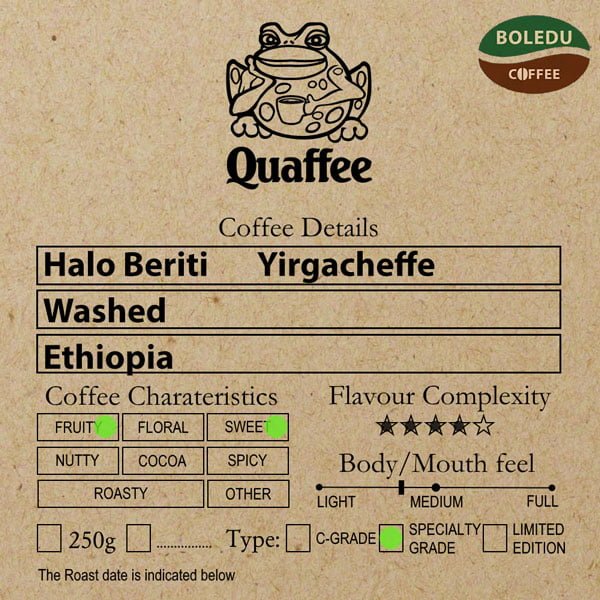
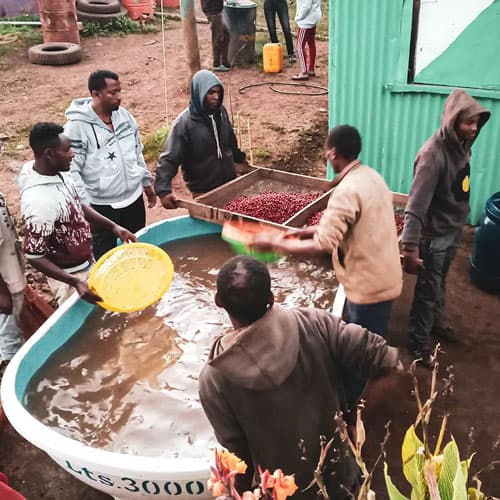
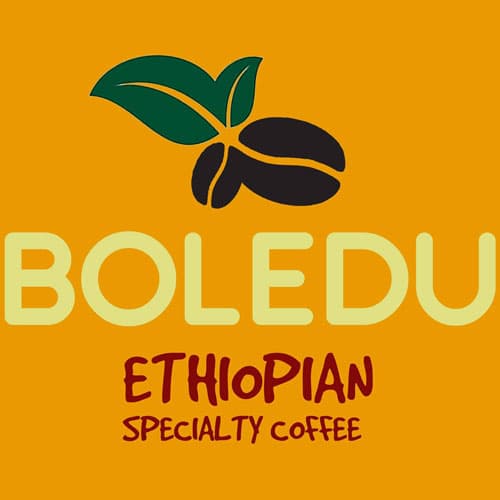
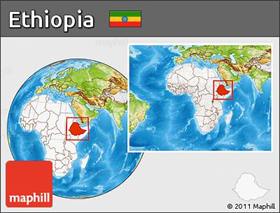
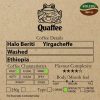
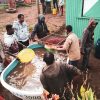

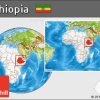

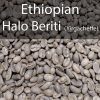
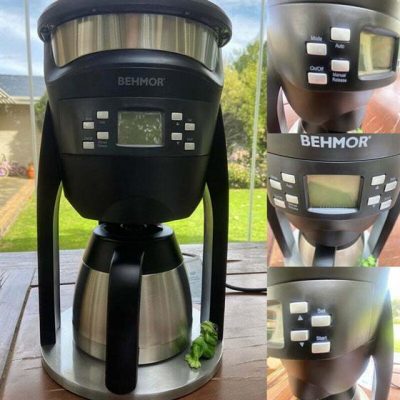



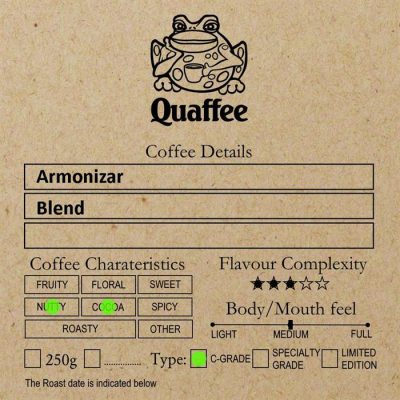

Reviews
There are no reviews yet.